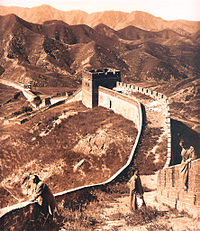
Back Argument uit stilte Afrikaans الحجة من السكوت Arabic Argument per silenci Catalan Argumentum e silentio German Argumento a silentio Spanish A silentio argudioa Basque مغالطه توسل به سکوت Persian Argumentum ex silentio Finnish Argumentum a silentio French אקס סילנטיו HE

To make an argument from silence (Latin: argumentum ex silentio) is to express a conclusion that is based on the absence of statements in historical documents, rather than their presence.[2][3] In the field of classical studies, it often refers to the assertion that an author is ignorant of a subject, based on the lack of references to it in the author's available writings.[3] Thus, in historical analysis with an argument from silence, the absence of a reference to an event or a document is used to cast doubt on the event not mentioned.[4] While most historical approaches rely on what an author's works contain, an argument from silence relies on what the book or document does not contain.[4] This approach thus uses what an author "should have said" rather than what is available in the author's extant writings.[4][5]
An argument from silence may apply to a document only if the author was expected to have the information, was intending to give a complete account of the situation, and the item was important enough and interesting enough to deserve to be mentioned at the time.[6][7] Arguments from silence, based on a writer's failure to mention an event, are distinct from arguments from ignorance which rely on a total "absence of evidence" and are widely considered unreliable; however arguments from silence themselves are also generally viewed as rather weak in many cases; or considered as fallacies.[1][8]
- ^ a b The Routledge Companion to Epistemology by Sven Bernecker and Duncan Pritchard (2010) ISBN 0-415-96219-6 Routledge pp. 64–65 "arguments from silence are, as a rule, quite weak; there are many examples where reasoning from silence would lead us astray."
- ^ "argumentum e silentio noun phrase" The Oxford Essential Dictionary of Foreign Terms in English. Ed. Jennifer Speake. Berkley Books, 1999.
- ^ a b John Lange, "The Argument from Silence", History and Theory, Vol. 5, No. 3 (1966), pp. 288–301.
- ^ a b c Seven Pillories of Wisdom by David R. Hall 1991 ISBN 0-86554-369-0 pp. 55–56.
- ^ Historical evidence and argument by David P. Henige (2005) ISBN 978-0-299-21410-4 p. 176.
- ^ Cite error: The named reference
Howe73was invoked but never defined (see the help page). - ^ Cite error: The named reference
Magna56was invoked but never defined (see the help page). - ^ Cite error: The named reference
Duncan83was invoked but never defined (see the help page).
© MMXXIII Rich X Search. We shall prevail. All rights reserved. Rich X Search